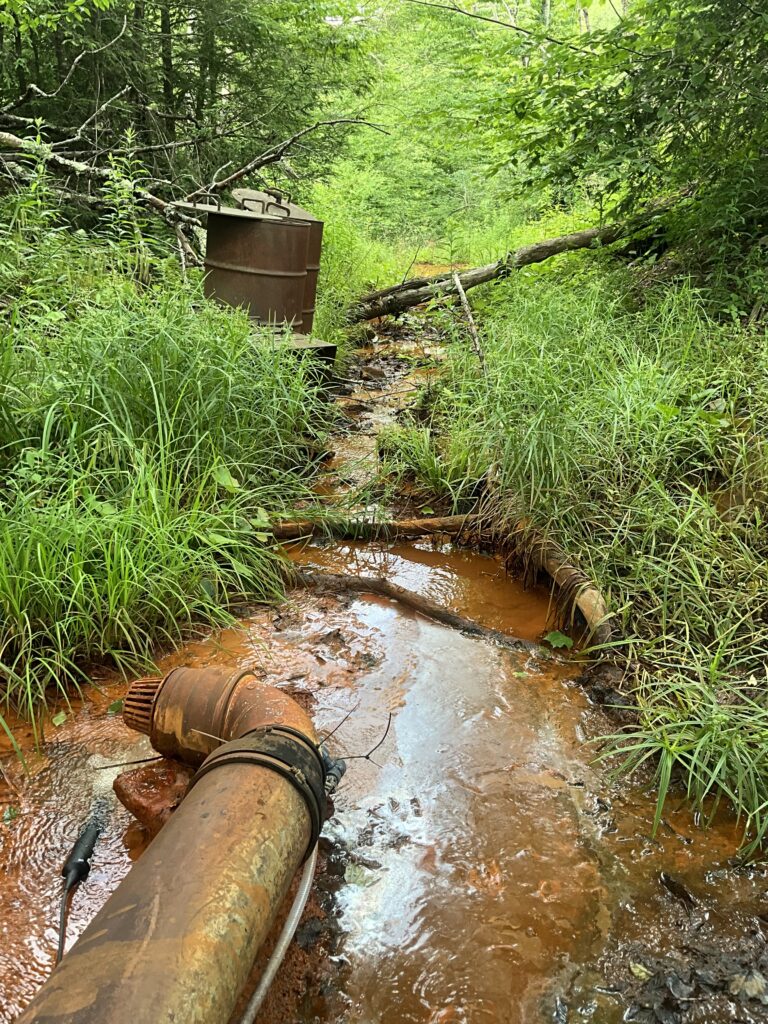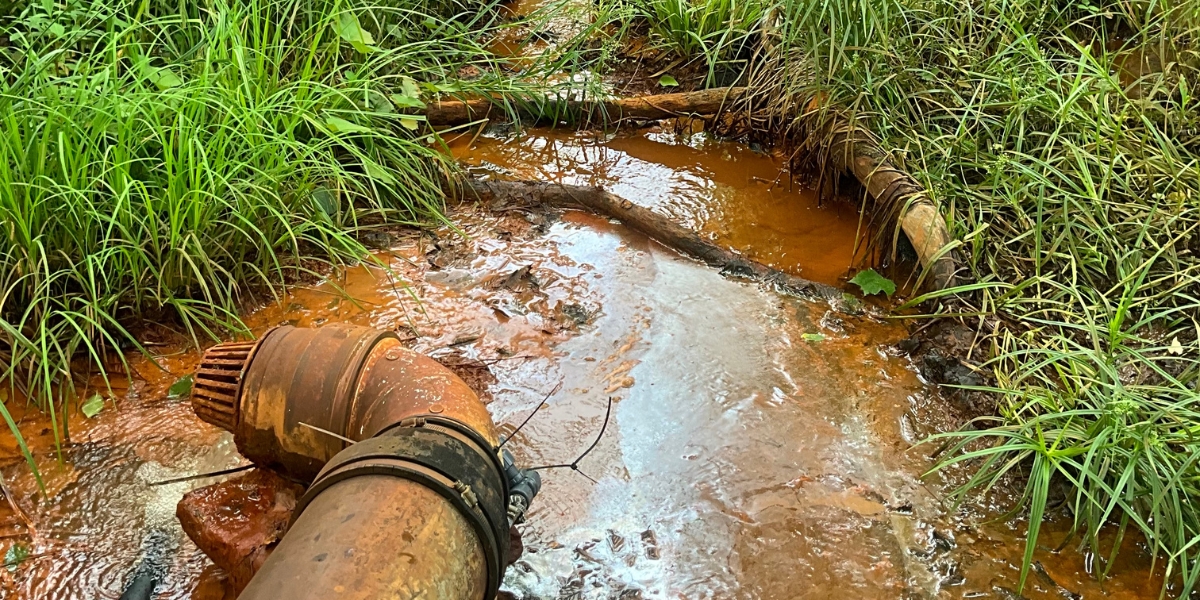By Olivia Miller
In June, representatives from the West Virginia Highlands Conservancy and partner groups went on a citizen inspection of South Fork Coal Company’s South Fork Deep Mine No. 2 in Greenbrier County, West Virginia. In May, WVHC submitted comments opposing the Surface Mining Control and Reclamation Act (SMCRA) permit renewal application for this deep mine. South Fork Coal Company is the only known coal operator with active permits in the critical habitat of the endangered candy darter.
This mining company has inflicted tremendous damage to a remarkably wild and seemingly boundless high-elevation Appalachian ecosystem along the border of the Monongahela National Forest, with plans to expand and excavate more metallurgical coal from deep within the mountains.

The purpose of a SMCRA permit renewal is to ensure that mining operations continue to comply with environmental and regulatory requirements set forth by SMCRA. The renewal process provides an opportunity for public input and ensures continued oversight and accountability of mining operations.
Our input on this permit renewal application remained the same as for every other permit renewal application in critical candy darter habitat. South Fork Coal Company has not implemented protective plans for the candy darter as required by the Endangered Species Act. The Office of Surface Mining Reclamation and Enforcement and the West Virginia Department of Environmental Protection have failed to enforce these plans since 2020. Every permit held by South Fork Coal Company lacks these protective plans.
This particular deep mine has been sealed and abandoned for several decades. The deep mine permit area has been reclaimed, and all disturbed and reclaimed areas still flow through a sediment control structure. The permitted area is solely being used to support the 1,000-plus acre adjacent Rocky Run Surface Mine.
A drainage ditch to a settling pond used to collect stormwater runoff from the site had been destroyed by timbering operations an unknown number of years ago, rendering the drainage ditch ineffective. Meanwhile, the potentially toxic mine runoff was headed for the South Fork of the Cherry River in the valley below, as it presumably had been for years.
Although this mine had been sealed and reclaimed many years ago, two locations within the permit boundary had unexplainable toxic mine drainage. At the time, there was no explanation for where the drainage was coming from or why it was occurring. The inspection took place during the middle of drought-like conditions, yet vibrant orange water was still flowing steadily from deep within the earth, threatening to permanently degrade the once pristine South Fork of the Cherry River below and push the candy darter ever closer to extinction. We are still awaiting results from the water samples to confirm if the water was polluted by acid mine drainage.
The second settling pond appeared to have pipes diverting water off-site that had recently been poorly covered up.
South Fork Coal Company has received permits to operate strip mines and associated infrastructure on nearly 3,300 acres here since 2012. This adds to the roughly 550 acres of surface coal mining permits the company has held in Greenbrier County since the 1990s.
WVHC remains committed to advocating for stringent oversight and regulatory enforcement to preserve the region’s natural beauty and ecological integrity, and protect both humans and wildlife from the harms of coal mining pollution. We will continue to oppose this and every other non-compliant SMCRA permit in candy darter critical habitat until proper protections are implemented.

